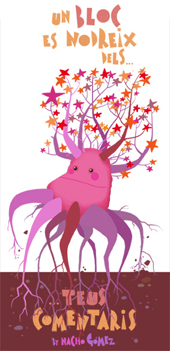Raising global awareness in a second language.

The first session I attended was Helen L. Walker presenting Raising global awareness in a second language and speaking from her experience as an early years teacher in the immersion programme in Canada.Helen asserted that we still tend to live within our own cultural bubble despite the immediacy of internet etc, and that global awareness, that is, an understanding and appreciation of other cultures, is something on which we still need to work. She talke dof how we can do this using books, experiences and contcts as well as global focus weeks such as thos edetailed on the SWgfl.
Whilst living in an English speaking part of Canada (Calgary), Helen taught a class under the immersion programme of pupils aged 5 who had no or very little French. they began their journey using the topic L’Afrique, and applying an enquiry based method of learning. They looked at elephants, had an Africa day and did lots of art activities. Questions were posed and the children looked for the answers with teacher help where needed.
One such question was ‘Does it rain in Africa?’ to which the children immediately answered ‘no’. Reading What the animals were waiting for, a book about the rains in Africa, challenged this view and shaped their understanding of what it might be like to live in Africa.
Another book Beatrice’s Goat had wide reaching effects on the pupils.
Beatrice lives in Uganda and wants to go to school but has no uniform as she can’t afford it. Then she’s sent a goat from a charity. The pupils empathised with Beatrice - and wanted to send a goat to her. Helen explained that Beatrice now had a goat, but that perhaps they could buy a goat for another child. The class discussed how to raise money to send the goat, and settled on creating items to auction off including the journal of Françoise the class teddy bear, booklets made in computer time in french about numbers, colours, animals and Africa. On an art trip they made a quilt with each child contributing a square - this too was auctioned . All in all, they raised sufficient money to buy a barn full of animals. Not only had they raised funds but also the awareness; the pupils were so proud of themselves and had a great joy in giving.
Helen offered a list of some of the resources she used, and of sites that were useful for this type of thing, and others shared ideas from their classes including a boys’ school where the pupils raised money by doing the staff’s ironing!
As a postscript to this, I overhead a conversation today about an article saying that by teaching ICU, we are producing racist pupils as we are presenting a ‘stock view’ of countries. This rang bells as I had had a similar experience in Liverpool at the PLS where someone had been challenged for portraying a very narrow view of life in Martinique. Good point i guess. How can we make sure we’re not reinforcing unhelpful stereotypes?










Post a Comment